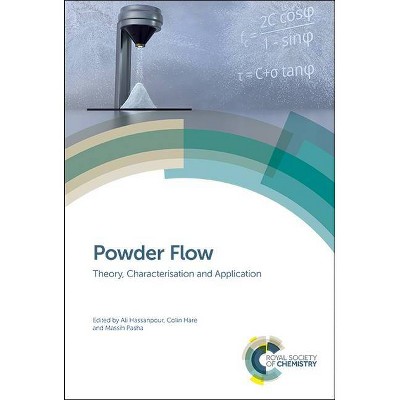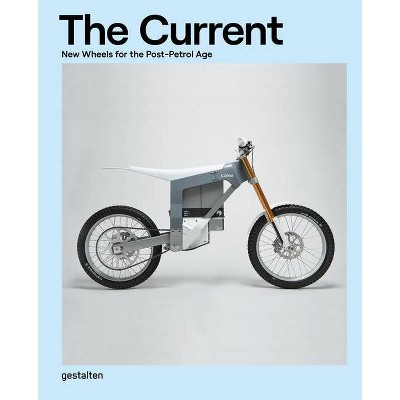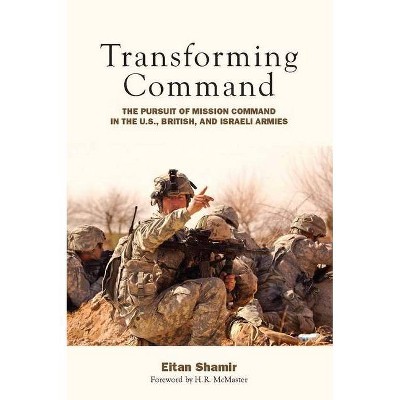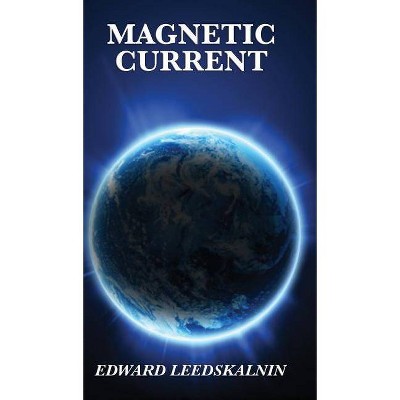Current Flow - by Ronen Shamir (Hardcover)
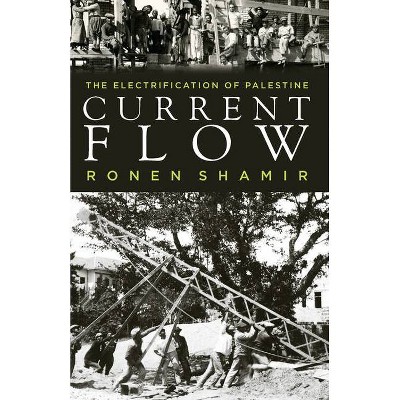
Similar Products
Products of same category from the store
AllProduct info
<p/><br></br><p><b> About the Book </b></p></br></br>This book discusses the history of electrification in British-ruled Palestine in the 1920s to show the crucial role that electrification played in assembling a material infrastructure of ethno-national separation in Palestine, long before political partition plans had ever been envisioned.<p/><br></br><p><b> Book Synopsis </b></p></br></br>This book discusses the history of electrification in British-ruled Palestine in the 1920s to show the crucial role that electrification played in assembling a material infrastructure of ethno-national separation in Palestine, long before "political partition plans" had ever been envisioned.<p/><br></br><p><b> Review Quotes </b></p></br></br><br><i>Current Flow</i> seeks to provide a historical sociology-based perspective on the interaction between the technical aspects of constructing an electrical power grid with the political and social implications of such an effort. In a book useful for scholars studying ethno-national relations and modernization, Shamir's narrative highlights the unique role electrification plays in transforming social society.--<i>Middle East Journal</i><br><br>A tour de force, exciting, and daring, <i>Current Flow</i> reveals how social distinctions reside in and on an electrical grid: enabling (or disabling) social formations, separating public and private, and ranking groups and classes. As a visible material assembly whose currents connect sketches, maps, and legal contracts to lamps, transformers, and current-meters; entrepreneurs, electricians and engineers to lawyers, officials, and customers, the grid becomes an actor rather than simply an assemblage.--Susan S. Silbey "Massachusetts Institute of Technology"<br><br>In this strikingly original book, Ronen Shamir traces the electrification of 1920s Palestine by way of an expanding grid of wires and poles, technicians and officials, texts and images. How was it that the enterprise designed to connect Arabs and Jews in a single, all-Palestine system, ended up energizing those very ethno-national divides, anticipating more thoroughgoing separations to follow? Shamir's ingenious account of the conundrum suggests a specific sort of understanding: technical processes of this kind, he insists, are <i>themselves</i> intrinsically social, historical. They do not merely transmit politics, they make it.--Jean Comaroff "Harvard University"<br><br>Ronen Shamir's new book is a timely and thoughtful study of the electrification of Palestine in the early twentieth century. <i>Current Flow: The Electrification of Palestine</i> makes use of Actor-Network Theory as a methodology to trace the processes involved in constructing a powerhouse and assembling an electric grid in 1920s Palestine. The book brilliantly shows how electrification 'makes politics' rather than just transmitting it . . . Whether you're interested the history of Palestine or the historical sociology of science, this is a fascinating, inspiring study well worth reading!--Carla Nappi "<i>New Books in Science, Technology, and Society</i>"<br><p/><br></br><p><b> About the Author </b></p></br></br>Ronen Shamir is Professor of Sociology and Anthropology at Tel-Aviv University and author of <i>The Colonies of Law: Colonialism, Zionism and Law in Early Mandate Palestine</i> (2000) and <i>Managing Legal Uncertainty: Elite Lawyers in the New Deal</i> (1996).
Price History
Price Archive shows prices from various stores, lets you see history and find the cheapest. There is no actual sale on the website. For all support, inquiry and suggestion messagescommunication@pricearchive.us

